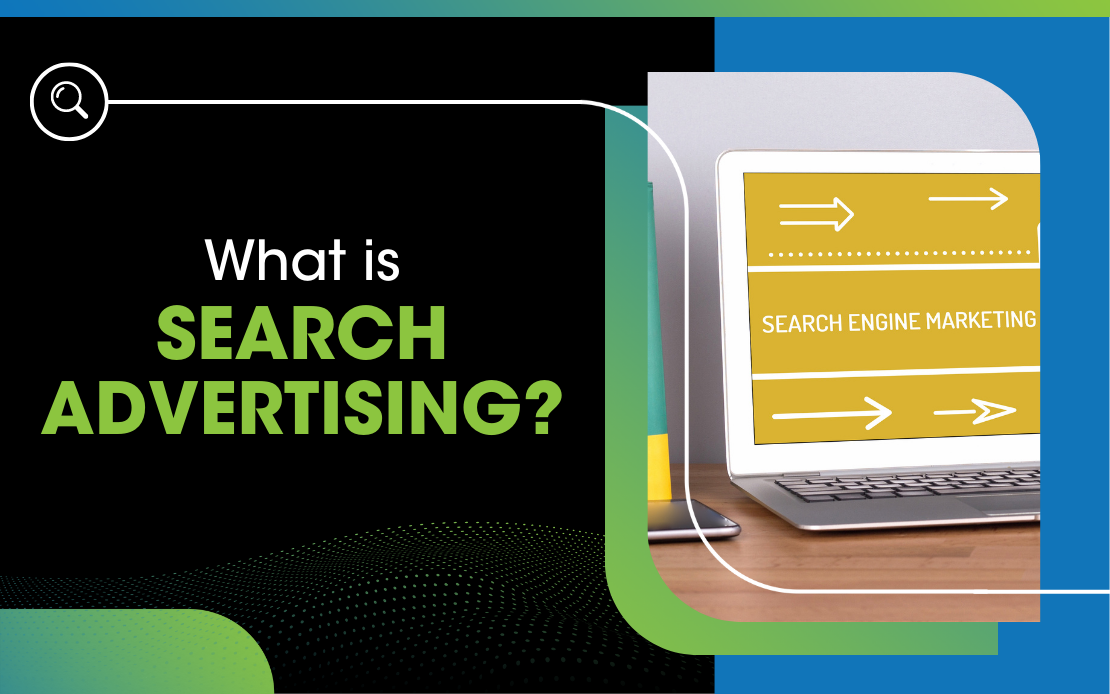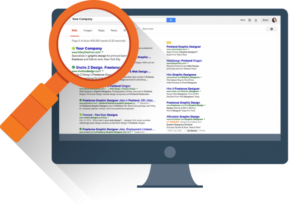
 John Wanamaker, a department store magnate complained more than a century ago that half of his advertising investment went to waste. He just didn’t know which half.
John Wanamaker, a department store magnate complained more than a century ago that half of his advertising investment went to waste. He just didn’t know which half.
Search advertising might be the solution Mr. Wanamaker was seeking. Search advertising, often referred to as pay-per-click (PPC) or SEM, is an effective and measurable way to drive leads and sales for your business.
Search advertising is generally considered a bottom-of-the-funnel tactic focused on connecting your message to searchers with an intent to buy your product or service category. Search advertising is about convincing a potential customer to take an action, including purchase. Search advertising is not as effective building brand equity, demand, awareness or effective positioning as it is at getting your message in front of buyers ready to buy.
Paid search advertising differs from organic SEM in that your paid listing will rank higher in the search engine results pages than an organic listing. A higher ranked listing will likely result in more response to your message. Organic search relies heavily on optimizing your website for search while paid search marketing allows you to skip the line toward more immediate results.
Using a combination of both paid and organic search can be quite effective, especially as your SEO builds over time, not unlike your credit score. Expecting immediate results from your SEO investments might lead to disappointment. Adding paid search to your campaign can deliver you results while your SEO investment builds.
Paid search advertising is typically, although not always, sold on a pay-per-click (PPC) basis. This means that you only pay when your potential customer takes an action including clicking your ad. John Wanamaker would have relished the measurability of this advertising vehicle.
Although many think first of Google as the best place to run their search-based campaigns, other viable platforms include YouTube, Bing, Facebook, Instagram, LinkedIn, Twitter, Amazon, and Pinterest, among others. No two platforms are alike and doing your research to determine the best platform for your business is essential. Considerations include: Platform user base, ad serving volume, creative opportunities, and your advertising budget.
There are many studies confirming the popularity and effectiveness of search advertising including CMO.com who share that 85% of retailers surveyed said search marketing (paid and organic) was their most effective customer acquisition tactic. As well, 70% of agencies predict client search budgets would increase. They invest in search advertising because it works.
There are a few needed steps to ensure you get the most out of your search marketing investment. You must identify the best keywords to include in your program. These are the search terms your customers might use to find your product or service. Search platforms provide useful tools to help you to learn the best keywords to employ.
You will also need to develop compelling copy to include as your advertising message and determine your budget.
Another important component of a search campaign is your Quality Score. Your quality score is calculated by the search engine platform and considers the click-through rate of your ad, the relevance of your advertising including the keywords you include, and the customer experience related to your landing page or website, calculated through your bounce rate. Your quality score will impact your search rankings and click-through rate.
These are not the only components of your quality score, the search engine platforms are constantly tweaking and improving their algorithms to evaluate the quality and ranking of your advertising. Only they know the complete formula.
The River Valley Media Group are experts developing effective search marketing campaigns and can include SEM as part of your comprehensive marketing program. Every day we develop effective programs for our clients and can do likewise for you. Complete the form below or drop us a note to learn more.
